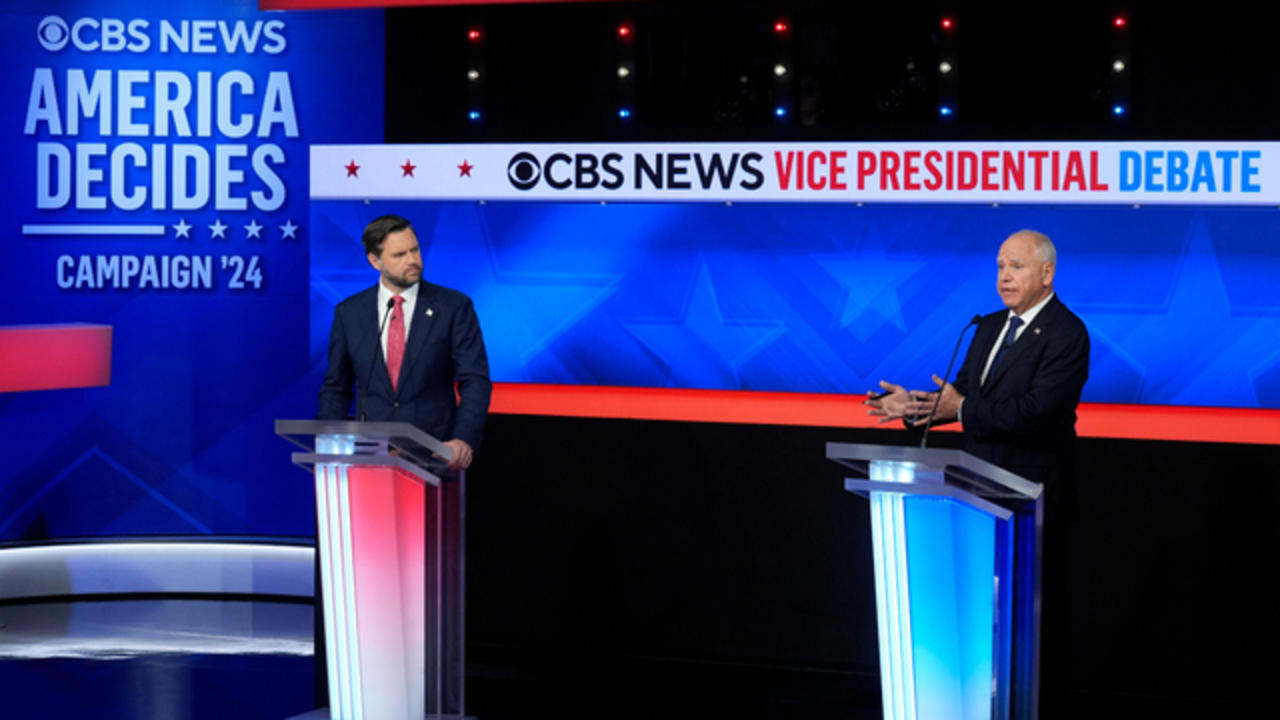
This week’s Vice Presidential debate was refreshingly focused on policy. It was even (clutch pearls) civil. The candidates wrangled questions on taxes, housing, child care, paid family leave and other issues that produced 49 references to the word “child” or “children” and 23 references to “kids” (well, 20 if you subtract JD Vance’s repeated mention of his “three beautiful little kids”).
Politicians mentioning children is nothing new. They do it all the time. Kids are the future. What kind of world will we leave to our children. It’s about the children. Kiss baby. Hold baby. Smile at baby.
This campaign hasn’t abandoned platitudes, but it has at least buffered them with some real conversation about policies. Here are a few key issues that came up in the debate and where the candidates stand on them:
Child Tax Credit:
Moderators asked both candidates about the Child Tax Credit. However, they repeatedly conflated it with the Child and Dependent Care Tax Credit, giving the candidates lots of wiggle room for their answers. Anyhoo…..
The Harris-Walz campaign has proposed expanding the Child Tax Credit to $6,000 for newborns and has said the policy would be a Day 1 priority. As Vice President, Harris supported historic improvements that increased the Child Tax Credit to as much as $3,600 per child, lifting nearly 3 million children out of poverty in 2021 and cutting the child poverty rate to 5.2%, a record low. She pushed for more improvements when those expired. As Governor of Minnesota, Walz advocated for and signed into law the country’s most robust state Child Tax Credit.
This well-established support for the improved Child Tax Credit left debate moderators with only one question for Walz: “How would you pay for that without ballooning the deficit?”
His answer: “We’ll just ask the wealthiest to pay their fair share.”
The Trump-Vance record on the Child Tax Credit is less clear. In 2017, Congress passed and Trump signed a slightly improved Child Tax Credit that increased the amount to $2,000 for some children, but left behind 18 million others whose parents made too little to qualify. Trump then opposed a plan by Republican Senators Marco Rubio and Mike Lee to further improve the Child Tax Credit because they wanted to pay for it by giving corporations a smaller tax cut. (They proposed a 20% cut to corporate taxes instead of the 22% Trump wanted.)
Vance, on the other hand, has no record on the Child Tax Credit and studiously avoided creating one by skipping a recent Senate vote on the issue. Nonetheless, he has publicly floated increasing the credit to $5,000 per child.
One obvious problem with this proposal: Vance will not be the president. In all fairness, it’s not clear that he knows this is an obstacle. He regularly insists that Kamala Harris has had three-and-a-half years to enact all the policies she’s talking about because she is the Vice President. This is a notion so preposterous that it carried an entire sitcom (See: Veep).
Tuesday’s moderators seemed to have a better handle on basic U.S. civics, asking Sen. Vance: Is President Trump committed to the $5,000 per child tax credit that you have described?
Vance, seizing on the moderator’s conflation of the child tax credit and the child care credit answered: “Well, what President Trump said, Margaret, I just want to defend my running mate here a little bit, is that we’re going to be taking in a lot of money by penalizing companies for shipping jobs overseas and penalizing countries who employ slave laborers and then ship their products back into our country and undercut the wages of American workers. It’s the heart of the Donald Trump economic plan.”
Vance did not use the words “Child Tax Credit” at any point in his answer. The moderator did not follow up.
Child Care:
As a senator, Harris supported capping child care costs at 7% of household income. As a 2024 presidential candidate, she has added increased federal funding for child care centers, expanded child care options for infants and toddlers, and higher wages for child care workers. As governor, Walz created one of the nation’s most robust child care assistance programs and introduced funding for pre-K programs.
As President, Trump included a child care deduction in the 2017 tax overhaul, but it missed low- and middle-income families and did little to address the upfront costs of child care, i.e. you have to have available cash to pay tuition. In his current campaign, Trump has offered no specific child care proposals, though his running mate did try to use his CTC answer (above) to clarify Trump’s garbled message to the Economic Club of New York that “as much as child care is talked about as being expensive, it’s, relatively speaking, not very expensive.”
Vance has taken a more conservative stance on child care, saying that it is best provided by family members, not the government, and even suggesting that families rely on relatives instead of government aid.
Moderators also asked the candidates about…
Gun violence:
Harris and Walz, who both own guns, support an assault weapons ban, universal background checks, safe storage laws, and “red flag” laws. Harris and Walz also propose preventing school shootings by increasing mental health resources for students and strengthening safety measures in schools.
Trump emphatically supports the positions of the National Rifle Association and has told supporters that when it comes to school shootings, the country just has to “get over it.” His running mate has called school shootings “a fact of life.” To protect school children from gun violence, Vance offered debate moderators the following solution: “We have to make the doors lock better. We have to make the doors stronger. We’ve got to make the windows stronger.”
Housing:
The Harris campaign proposes $25,000 in down payment assistance for first time homebuyers and a $10,000 tax credit, and plans to build 3 million new homes. Question to Walz: “Won’t handing out that kind of money just drive up prices higher?”
Walz answer: “We get it back from people, because here’s what we know. People with stable housing end up with stable jobs. People with stable housing have their kids able to get to school. All of those things in the long run, end up saving our money.” He added a plug for creating generational wealth.
The Trump campaign, on the other hand, would seize federal lands to build homes, remove regulation, provide tax breaks, and cut back on immigration, which the campaign blames for pushing up home prices. Question to Vance: “Where are you going to build all the new homes you’re promising? And what part of any of this plan will provide immediate relief?”
Vance answer: “We don’t want to blame immigrants for higher housing prices…The most important thing here is Kamala Harris…is the sitting Vice President. If she wants to enact all of these policies to make housing more affordable, I invite her to use the office that the American people already gave her.” (Again, see Veep.)
Ninety minutes of debate obviously could not cover every issue of importance to the country, and in particular, to its children. For a full analysis of where each candidate stands on education, child hunger, children of immigrants and other issues, please see Children on the 2024 Ballot: Where Do Harris-Walz and Trump-Vance Stand?, from First Focus Campaign for Children President Bruce Lesley.
